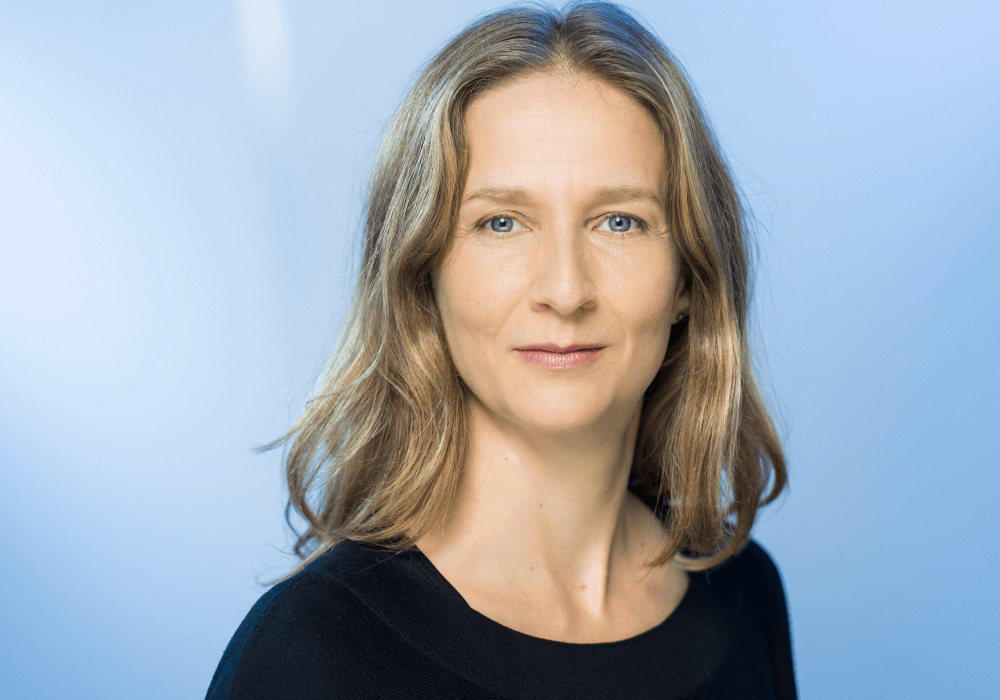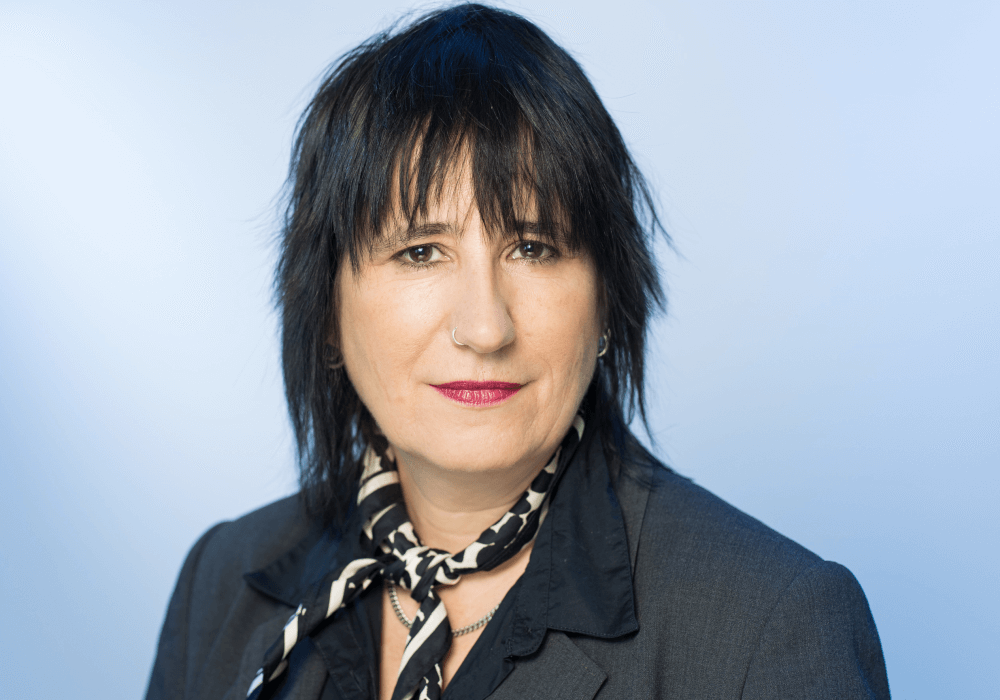DFFF II
According to the current DFFF guidelines, production service providers such as production studios or VFX service providers are eligible to apply under DFFF II if they are responsible for a feature-length film commissioned to them or even just for part of such a film. These can be both feature films and animated films that are to be shown in cinemas in Germany and whose producers undertake to comply with the holdback periods. A prerequisite for eligibility is that the total production costs of the film amount to at least 20 million euros and that the German production costs commissioned from the service provider amount to at least 8 million euros. If projects have to meet the cultural characteristics test for animated films, the German production costs must amount to 2 million euros. The funding amounts to 30 per cent of the approved German production costs, with a cap of 25 million euro per project. The exact funding and approval requirements can be found in the current guideline.
The funding consultant will be happy to answer any further questions you may have:
DFFF Team
back
FAQ - DFFF II
§21 Applicant production service provider
Production service providers may apply for funding for the production of a feature-length film or animated film or part of such a film. The applicant company must demonstrate specialisation in and sufficient experience with services in the audiovisual sector. Proof is deemed to have been provided if the applicant production service provider, as a natural or legal person or a company affiliated with it under company law, has, within the last five years prior to the application, either
- been responsible as a production service provider for two feature-length films with a contract value of at least 1 million euros (net) each and total production costs of at least 10 million euros (net) each
or - has produced such a film (total production costs of at least 10 million euros) as a producer and has sufficient specialised personnel at the time of application.
If the applicant company is not based in Germany and is only planning to establish a branch in Germany, proof of the German branch must be provided at the latest at the time of payment of the grant. For companies whose headquarters are located outside the EU, the EEA or Switzerland, all eligibility requirements must be met by the subsidiary or branch in Germany. Since the UK's withdrawal from the EU, this also includes companies from the United Kingdom of Great Britain and Northern Ireland.
The production service provider may perform the service itself or have it performed by third parties. If several production service providers meet the requirements for the part work/film, the application can only be submitted by one production service provider. The participating production service providers must agree on this and submit a corresponding declaration (see download area) to the FFA. Applications from different production service providers for different parts of a film are permitted independently of each other.
§22 Film-related requirements
Feature-length fiction and animated films that are released in cinemas in Germany are eligible for funding.
The total production costs must amount to at least 20 million euros. The German production costs of the partial work/film commissioned from the production service provider must amount to at least 8 million euros. For films that must use the cultural characteristics test for animated films, the German production costs must amount to at least 2 million euros.
The cultural characteristics test for animated films and animated feature films must be used if at least 50 per cent of the German production costs are attributable to expenses directly related to the cultural characteristics test for animated films and animated feature films.
The film must be produced in compliance with environmental standards.
§28 (1) and (2) Application and application procedure
Applications may be submitted on an ongoing basis, but no later than six weeks before the start of the commissioned service.
The application must be submitted electronically to the FFA.
The financing of the project does not have to be 65 percent complete at this point, but 40-50 per cent is a good benchmark.
Further information is available under ‘Application’.
As a general rule, work may only commence after the grant notification has been issued. The start of the project is deemed to be the first actual day of shooting, regardless of the country in which it takes place.
In the case of virtual filming, it is the first virtual day of filming or the start of the production of digital assets, provided this takes place in advance of the virtual filming.
In justified exceptional cases, an application may be made for an early start to filming or animation work. The form for this can be found in the download area.
The application must be submitted in good time, at the latest one week before the start of filming. For approval, it is important that the 6-week deadline for submitting the funding application has been met.
The application must justify the compelling content and production circumstances for the early start of measures and why the applicant production service provider continues to be dependent on DFFF II funding.
Please also note that the application for early commencement of measures can only be approved if the basic eligibility requirements for DFFF II are met, such as passing the cultural characteristics test.
§22 (6) Appendix 2 Point 8 Production service provider fee, special provisions for the production service provider's own services and for multiple activities
The recipient of the production service provider fee is the natural person who is responsible for performing the production service.
If the natural person responsible for performing the production service is also the owner, sole or majority shareholder of the production service provider (sole proprietorship, partnership or corporation) and the producer, no additional producer's fee may be claimed.
The maximum rate for the production service provider fee is 5 per cent of the production costs of the project for which the production service provider is responsible (excluding any previous fee), up to a maximum of 350,000 euros.
The following example illustrates how the calculation is made.
| Total production costs: | 35,000,000.00 € |
| Total production costs of the commissioned work/film: | 15,500,000.00€ |
| Calculated service provider fee: | 200,000.00 € |
| 15,500,000.00 € – 200,000.00 € = 15,300,000.00 € * 5 % = | 765,000 €, BUT capped at 350,000 € |
As the production service provider fee is 200,000 euros, no cap is required.
If your calculated service provider fee exceeds the possible maximum, the fee must be capped at the maximum of 350,000 euros in the German production costs, approved German production costs and actual German production costs.
§22 (6) Appendix 2 Point 8 Production service provider fees, special provisions for the production service provider's own services and for multiple activities
If the production service provider or the natural person responsible for performing the production service, or the owner, sole or majority shareholder of the production service provider (sole proprietorship, partnership or corporation) provides an additional service and is thus performing multiple activities, certain fee rates must be taken into account:
Producer's fee: 5 per cent of the production costs for which the production service provider is responsible (excluding the fee), but not exceeding 350,000 euros (calculated in the same way as the production service provider's fee).
In this case, no additional production service provider's fee may be claimed.
Director's fee: 4 per cent of the production costs for which the production service provider is responsible (excluding the previous fee rate). The calculation is the same as for the production service provider fee.
Production manager or a person in another comparable role (e.g. line producer, production executive or financial controller): 2.7 per cent of the production costs for which the production service provider is responsible (excluding any previous fee), up to a maximum of 270,000 euros (calculated in the same way as the production service provider fee).
Any additional fee: capped at 20 per cent of the fee.
The cap may be waived if proof is provided that the calculated fee has already been capped by 20 per cent (a statement from the applicant production service provider is not sufficient) or if comparative contracts show that the service provider's usual fee for this activity is normally at least 20 per cent above the amount charged.
Benefits in kind: 25 percent discount on list prices.
§4 Definitions and § 49 EStG
German production costs are all costs incurred for the project in Germany. This includes all services and goods that are invoiced or contracted in Germany. In the case of international co-productions with a German co-producer and a German production service provider, the costs for the fees of the German cast and crew members as well as the personnel costs of foreign cast and crew for the period of work in Germany can generally be added, provided that these are attributable to the production service provider and the production service provider is responsible for the organisational handling. This allocation must be clearly regulated in the production service provider contract.
Section 27 Amount of the subsidy; eligible production costs
Approved German production costs are all German costs minus the items listed in Section 27 of the guideline. In addition, the costs incurred in Germany for outdoor filming abroad may only be credited up to 20 percent of the foreign shooting days for which the production service provider is responsible.
The reference value for the upper limit of 20 per cent is the number of shooting days abroad for which the service provider is responsible (not the total number of shooting days for the project for which the service provider is responsible).
Calculation method using the example of a feature film:
German production costs (total from Appendix 11 of the DFFF II application)
minus all items in §27 of the guideline
minus the costs incurred in Germany for location shooting abroad for which the production service provider is responsible and which exceed the recognised shooting days
= approved German production costs
The costs for the German team, German actors, German equipment, props, costumes, etc. incurred for filming abroad can only be subsidised for approved location shooting abroad. Preparation, processing and travel days abroad are not subsidised.
According to §27, the following costs are not included in the eligible German production costs:
- General preliminary costs (in accordance with Appendix 2, Section 5 of the guideline)
- Costs for copyrights and rights to pre-existing works (books, pieces of music, etc.)
- Legal and tax advice
- Insurance
- Travel and transport costs for actors (accommodation costs in Germany are approved, however)
- Costs of finance
- Contributions and deferred fees for services provided by those involved in film production
- Contingency fund, provided it is not reversed to approved German production costs by the end of the project
- Costs for filming and other work abroad, insofar as these do not meet the requirements of Section 27 (5)
The following costs can only be included in the approved German production costs up to a certain limit:
- Screenplay up to 3 per cent of German production costs or a maximum of 150,000 euros
- Actors' fees (leading and supporting actors as well as day roles) up to 15 per cent of German production costs
Please note that travel and transport costs can only be approved for crew members if they start or end in Germany and were booked through a German travel agency (German invoice).
Projects approved in 2025 under provisional budget management
In principle, in accordance with Section 27 (4) of the guidelines, production costs can only be considered as approved German production costs if they fall within the approval period specified by the FFA in the grant notice. The approval period begins with the delivery of the grant notice, but no earlier than the approval of the early start of measures. Notwithstanding this, production costs incurred in the period of one year prior to the application until the start of the approval period may also be considered as approved German production costs, provided and to the extent that they are necessary for the application.
The above-mentioned option of also approved production costs incurred before the start of the approval period requires a budgetary basis. For the year 2025, provisional budget management will apply until the adopted budget is passed (expected in autumn). It is assumed that the 2025 Budget Act will allow for the approval of pre-production costs, as in previous years. In order to approve projects and make initial payments before the Budget Act comes into force, there is a transitional solution: production costs incurred before the start of filming or before receipt of the grant notification are approved with the condition precedent that the Budget Act provides for a corresponding budgetary regulation for recognition.
As the budget for 2025 has not yet been passed, there remains a certain residual risk that production costs incurred before the start of the approval period cannot be approved after the 2025 budget comes into force and that the total funding amount in the grant notification will be reduced accordingly.
Section 27 (5) No. 2 Amount of the subsidy; eligible production costs
At least 75 percent of the German production costs for which the production service provider is responsible must be incurred in Germany (excluding costs incurred for filming days abroad).
All costs incurred in Germany for filming abroad must be deducted from the German costs. This includes all fees, film material and equipment that was rented in Germany and taken abroad. Travel expenses for filming abroad must also be deducted, as must costs for travel abroad during preparation and post-production. In addition, no returns or provisions may be included in the actual production costs incurred in Germany.
Calculation method:
German production costs (total from Appendix 10)
minus all costs incurred in Germany for filming abroad and preproduction/post-production
minus all returns and provisions
= actual amount of production costs incurred in Germany
§27 (1) and (2) Amount of the subsidy; eligible production costs
The subsidy amounts to 30 percent of the recognised German production costs, up to a maximum of 25 million euros per film.
Projects whose shooting began before 1 February 2025 will receive a subsidy amounting to 25 per cent of the recognised German production costs, up to a maximum of €25 million per film.
A general upper limit of 80 per cent of the total budget applies to which the subsidy can be calculated.
| Calculation example: | |
| Production costs (PC): | 100 million euros |
| Production costs of the commissioned work/film: | 65 million euros |
| Approved German production costs: | 50 million euros |
| Upper limit: |
80 million euros |
| Calculation threshold (approved German production costs): |
50 million euros |
| Grant: | 15 million euros |
Changes may be made to the budget and financing during the review of the submitted documents and up until the date on which the grant notification is issued. Once the grant notice has been issued, no increase in the grant specified in the notice is possible, unless additional costs arise during production due to force majeure. Only in this case can these additional costs be granted upon application up to the amount of the respective permissible percentage grant (25 per cent / 30 per cent). The additional approval is limited to a maximum of 30 per cent of the original grant.
Projects with a grant notification dated 1 April 2021 or later:
For projects with a grant approval dated 1 April 2021 or later, the trust fee for auditing the final costs is 1.5 per cent of the grant up to a funding amount of 1.5 million euros. In addition, a further 0.75 per cent audit fee is charged up to a funding amount of 3 million euros (cap).
Calculation example:
Grant: 10,000,000 euros
Trust fees:
0–1.5 million euros * 1.5 per cent = 22,500 euros
1.5–3 million euros (cap from 3 million euros) * 0.75 per cent = 11,250 euros
= 33,750 euros
Projects with a grant notification by 31 March 2021
For projects that have received a grant notification by 31 March 2021, the trust fee is 1.65 per cent of the grant. For grants exceeding 4 million euros, the trust fee is 0.3 per cent of the amount exceeding 4 million euros. For grants exceeding €8 million, the trust fee is capped. Trust fees are recognised as German production costs.
Calculation example:
Grant: 10,000,000 euros
Trust fee (simple audit):
0-4 million euros * 1.65 per cent = 66,000 euros
4-8 million euros (capped at 8 million euros) * 0.3 = 12,000 euros
= 78,000 euros
§27 (5) No. 3 Amount of the grant; eligible production costs
In principle, a substantiated application for approval of filming abroad must be submitted for any planned filming abroad. This application can be made informally and must be submitted together with the funding application.
A maximum of 20 of the filming days abroad for which the production service provider is responsible are eligible (not 20 per cent of the total shooting days for which the production service provider is responsible). Only outdoor filming can be included in the approved German production costs at a rate of 20 per cent.
Example:
A German camerawoman is working on a feature film project with a total of 35 shooting days, 19 of which are in Germany and 16 abroad. The German service provider is responsible for the 19 shooting days in Germany and 10 shooting days abroad.
Of these 10 shooting days abroad, 8 are “predominantly” on-location shooting days (the camera is mainly outdoors) and two are indoor shooting days.
For feature films, the DFFF only subsidises German costs for outdoor shooting abroad up to a maximum of 20 per cent of the shooting days abroad for which the production service provider is responsible.
In our example, there are 8 outdoor shooting days abroad, but only 20 per cent of the 10 shooting days abroad for which the production service provider is responsible can be approved, i.e. a maximum of 2.
Fees for preparation and follow-up days as well as travel days abroad are not eligible for grants.
The camerawoman has a contract with a compensation of 48,380 euros and a total of 82 days, resulting in a daily fee of 590 euros. This results in the following breakdown:
| (in) Germany | abroad | eligible shooting days abroad |
|
|---|---|---|---|
| Preparation | 30 | 3 | 0 |
| Shooting | 29 | 10 | |
| of which inside | 19 | 2 | |
| thereof outside | 10 | 8 | |
| max. upper limit abroad (40 per cent of the total shooting days) |
keine | 2 | 2 |
| Processing/post-production | 5 | 1 | 0 |
| Travelling days | 2 | 2 | 0 |
| Working days per country | 66 | 16 | |
| Approved days in total | 66 | 2 |
How does this affect German costs, recognised German costs and the minimum amount?
- German costs: German costs include 100 percent of the fee, as the camerawoman pays tax here in Germany.
- Approved German costs: approved German costs include all German days, i.e. 66 PLUS the approved days of filming abroad, i.e. 2. A total of 68 days can therefore be subsidised. Multiplied by the daily fee, this means that 40,120.00 euros can be transferred to the approved German costs.
- Minimum amount: Only the German days, i.e. 66 days, are included in the minimum amount. Multiplied by the daily fee, this means that 38,940.00 euros can now be transferred to the minimum amount.
I summary:
| Days in Germany | ||
| Days of approved German costs | 68 | 30 preparation days in Germany + 29 shooting days in Germany + 5 processing/post-production days in Germany + 2 travel days in Germany + 2 approved location shooting days abroad |
| Days in minimum ammount | 66 | 30 preparation days in Germany + 29 shooting days in Germany + 5 processing/post-production days in Germany + 2 travel days in Germany |
| Total production costs | German production costs | Approved German production costs | Minimum ammount |
|---|---|---|---|
| 48.380,00 € | 48.380,00 € | 40.120,00 € | 38.940,00 € |
Foreign cast and crew members can be fully approved (salaries/wages & non-wage labour costs) for the period they are working in Germany under certain conditions if they are subject to limited tax liability in Germany in accordance with Section 49 of the Income Tax Act (EStG).
In the case of international co-productions with a German co-producer and a German production service provider, the costs for the salaries of German cast and crew members as well as the personnel costs of foreign cast and crew for the period of work in Germany can generally be included, provided that these are attributable to the production service provider and the production service provider is responsible for the organisational management. This allocation must be clearly regulated in the production service provider contract.
Example:
A French costume designer has a total of 78 working days, as she spends 3 days preparing in Germany and 30 abroad, shoots for 19 days in Germany and 16 abroad, has one day for processing/post-production in Germany and 5 days abroad, as well as 2 travel days within Germany and two days abroad. With 78 working days and a salary of 30,000 euros, this results in a daily fee of 384.62 euros.
| (in) Germany | Abroad | |
|---|---|---|
| Preparation | 3 | 30 |
| Shooting | 19 | 16 |
| Processing/Post-production | 1 | 5 |
| Days of travel | 2 | 2 |
| Working days per country | 25 | 0 |
| Approved days in total | 25 | 0 |
How does this affect the German costs, approved German costs and minimum amount?
All German days are included in the German costs, approved German costs and minimum amount, i.e. 3 + 19 + 1 + 2 = 25. Multiplied by the daily fee, this amounts to 9,615.50 euros.
| Total production costs | German production costs | Approved German production costs | Minimum ammount |
|---|---|---|---|
| 30.000,00 € | 9.615,50 € | 9.615,50 € | 9.615,50 € |
To ensure that the requirements for funding are met in accordance with the guidelines, a number of points must be taken into account when drafting the production service provider contract.
The film producer must declare to the production service provider (the applicant production service provider) that
- the proper overall financing of the feature-length film or animated film is secured;
- the limits for the permissible aid intensity pursuant to Sections 26 and 27 of the guidelines are not exceeded;
- the proper financing of the project (film or part of a film) for which the applicant production service provider is responsible is secured;
- proof of completion of the zero copy is provided on time
- the producer confirms timely cinema distribution in Germany
- the subsidised part is used in the film
- the producer guarantees compliance with the blocking periods in accordance with the FFG
- the subsidy from the German Film Fund is mentioned in the publicity and in the film credits.
Please note the information in Appendix 8.
In the event that the foreign co-producer employs foreign crew and cast members who work on the partial work/film in Germany and are subject to limited tax liability in Germany, the production service provider contract must clearly stipulate that the costs for the foreign cast & crew are to be allocated to the German production service provider and that the latter is responsible for the organisational management.
§25 cultural characteristics test
For projects in which at least 50 percent of the German production costs are attributable to expenses directly related to blocks A and B of the characteristics test for animated films, the characteristics test for animated films must be used (Appendix 5 of the guideline).
For all other projects, the cultural characteristics test for feature films must be used.
The points test under the European Convention does not apply to DFFF II.
§22 Project-related requirements
At least one final version of the film must be produced in German. A version of the film with German subtitles suitable for cinema screening is sufficient for the language version of the film.
§22 Project-related requirements
If the film is produced in collaboration with a German co-producer, at least one final version of the film must be produced in a version with German subtitles for people with hearing impairments and with German audio description for people with visual impairments in a quality suitable for the market and for cinema screening.
§24 Holdback periods
The applicant production service provider must prove, by means of a corresponding declaration from the producer, that the holdback periods of the FFG will be observed during the evaluation of the film.
The FFA Executive Board shall decide on reductions in holdback periods and on violations of holdback periods.
Section 27 (8) Amount of funding, eligible production costs
Funding from the DFFFII cannot be combined with other public funding from the federal budget.
Combination with funding from the state budget (e.g. federal state funding) is generally permitted, but only up to the limit permitted under European law of up to 50 per cent or, in the case of a co-production involving a producer from another EU member state, up to 60 per cent.
Difficult audiovisual works and co-productions involving countries from the OECD Development Committee list are exempt from these tresholds.
The assessment is made by the highest federal state funding body involved in the project.
§28 (5) Application and application procedure
If you have to withdraw your funding application or your project has been formally rejected, you have the option of resubmitting an application for this project twice. It is important that filming has not started yet.
DFFF grants are genuine subsidies within the meaning of the administrative regulations for the application of the Value Added Tax Act and are therefore not subject to value added tax (Section 10.2. UStAE on Section 10 UStG).
Section 22 (7) (Appendix 8)
The ecological standards must be complied with for all projects.
The necessary information for the application must be submitted using the digital tool for compliance with ecological standards.
After registration, you will receive a transaction number, which must be entered on the DFFF application form. Compliance will also be checked by the FFA after completion of the project.
§ 30 Disbursement
The grant shall generally be paid out after the final audit of the project. If instalment payments have been approved for the project, the grant shall be paid out in four instalments depending on the progress of the project:
1st instalment (25 per cent) at the start of filming/virtual work and finance is in place
- A signed copy of the original notification
- Proof of the start of the measure (e.g. first daily report)
- Declaration by the producer that the total financing of the project is in place
- Signed copy of the audit assignment (send the original to the audit company)
- Proof of residence/business address (or branch office, if applicable) in Germany if the application was submitted from abroad
Please refer to your notification for the list of documents required for payment.
2nd instalment (25 per cent) at the end of filming/completion of virtual work
- Final daily report or proof of delivery of the partial work
- Submission of all final contracts
3rd instalment (25 per cent) upon acceptance of the work by the producer and completion of the rough cut
- Proof of delivery and acceptance of the partial work by the producer
- Confirmation of completion of the rough cut/director's cut, if the partial work is a film
4th instalment (25 per cent) upon completion of the proof of use audit
- Declaration of agreement with the review report
- Proof from the distributor or producer that the film has been released in cinemas, stating the number of prints. If the film has not yet been released in cinemas, confirmation from the distributor of the planned cinema release is sufficient for the time being.
- Viewing DVD for checking the characterstics test
- Evidence of delivery of a German version of the film to the German Federal Film Archive (may also be supplied later)
Projects with grants of more than 2 million euros:
For projects with a grant of more than 2 million euros, completion insurance or a bank guarantee in the amount of the sum to be paid out must always be provided. Under the following conditions, an exception can be made and the first to third instalments can be paid out:
- Proof in accordance with the requirements for the first to third instalments (see above)
- Proof of completion of the final German version (zero copy)
- Confirmation from the distributor of the upcoming or completed exploitation
- Submission of a current cost statement that does not show any significant shortfalls in relation to the approved costs (ADHK) specified in the application and therefore does not give rise to expectations of a reduction in the funding amount, as well as
- a declaration from the producer that the regulations of DFFF II continue to be met.












